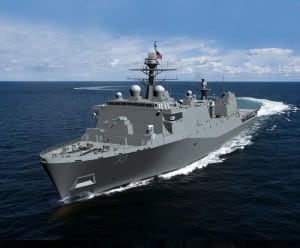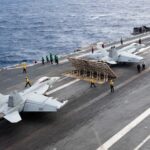
The chairman’s draft of the House Armed Services Committee’ fiscal year 2024 defense authorization bill threatens to shutter the Office of Cost Estimate and Program Evaluation (CAPE) over disagreements with the Defense Department’s limits on amphibious ship procurement. The bill mark specifically would disestablish CAPE and authorize the Secretary of Defense to determine where to devolve CAPE’s developmental testing responsibilities. CAPE was established in its current form in 2009 to provide independent analytics advice to the Secretary and Deputy Secretary…

 By
By 











